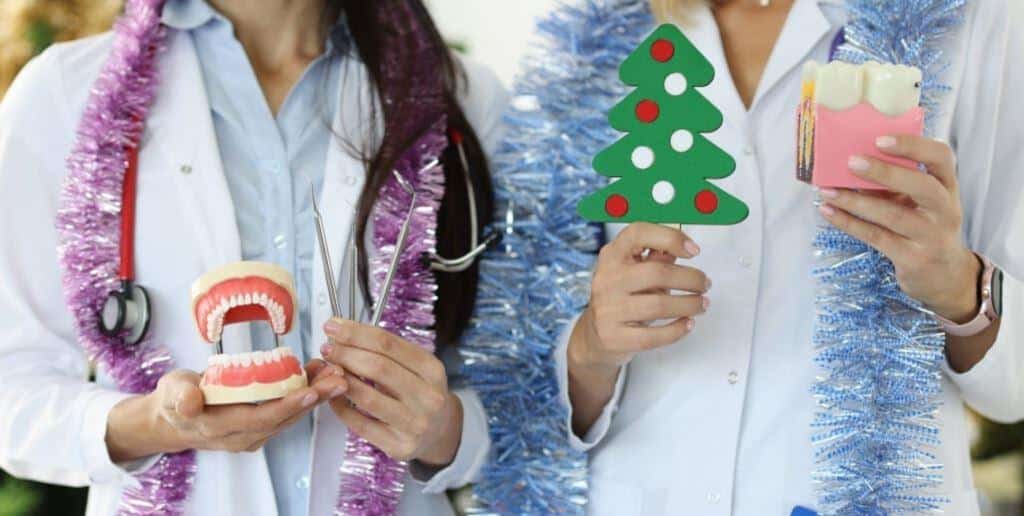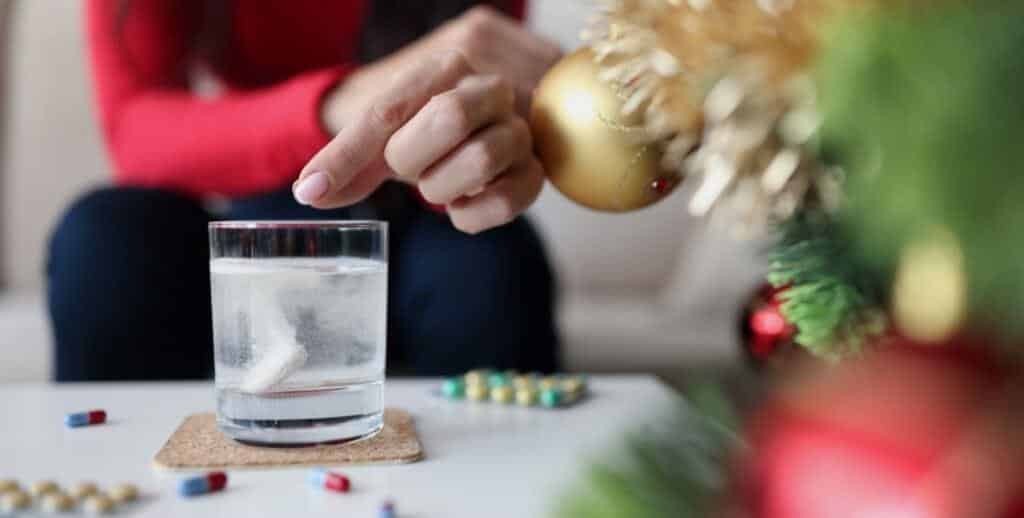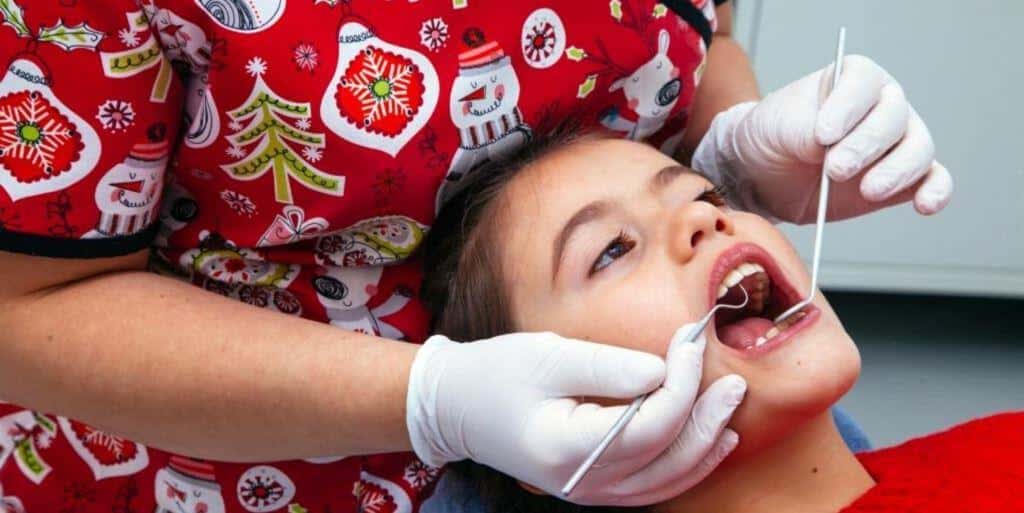The dishes are prepared, the family is together, it's only a matter of time before you sit down together at the Christmas table. Can anything go wrong? It can! You might get a toothache on Christmas Day in the UK, for example. Not the best time, is it? As you're probably aware, it's an extremely annoying ailment. A toothache cannot - and must not! - to ignore it. You need to act fast!
Find out how to prevent it and what to do once it has caught up with you.
Causes of toothache
The causes of a toothache at Christmas can be many. It could be their hypersensitivity, caused by enamel damage or mechanical damage.
However, cavities are the most common cause. When you do not take care to regularly check the condition of your mouth, these can be surprisingly numerous. Along with these, decay is very common, and from there it is a straight road to pulpitis and the accompanying very severe pain.
Other causes of toothache can be an abscess, inflammation or teeth grinding. Read more about the causes, types and treatments of toothache in our article: "Toothache - types, causes and treatment".
But what if the ailment occurs over Christmas?

Toothache at Christmas - how to deal with it?
A toothache at Christmas is an extremely unpleasant affair, so you should do everything you can to prevent it.
The easiest way to do this is by visiting the dentist at least twice a year. It is also worth taking care of regular hygiene. You can read more about the procedure itself and why it is so important in our text "Dental hygiene in the UK - scaling, tooth sandblasting, polishing and fluoridation".
Of course, do not hesitate to visit the surgery when you notice worrying signs and changes in your mouth.
Especially before Christmas, it's worth making a follow-up appointment to avoid the unpleasant surprise of a toothache. And if you are looking for your dentist in the UK, check out our officeWe will take care of your healthy and beautiful smile professionally and in a relaxed atmosphere.
To avoid toothache over the holidays it is also worth following a few rules. Firstly, watch out for bones, their sharp ends can damage a tooth or filling. Similarly with nuts, always use a nutcracker to split them, never your teeth. Don't overdo it with sweets either. Remember - sugar damages your teeth at Christmas too. What else? If you want to know more about this topic, we recommend our text "Christmas carp, mulled wine, sweets - how to look after your teeth at Christmas".

But what should you do if you get a toothache over Christmas?
1. medicines.
Surely you have paracetamol at home, which has an analgesic effect. We are aware that patients would most like to swallow several tablets at once during painful conditions, but please - do not do this. The safe dose for an adult is 4 g.
What other medicines will help a toothache at Christmas in the UK? Of course - ibuprofen. This is also a very popular remedy that you are sure to have in your home medicine cabinet.
Before Christmas, be sure to check that you have everything you need. Don't forget to visit the pharmacy!
2. packs.
Sucking ice cubes can also provide temporary relief, but this method is not suitable for hypersensitive teeth.
3. Eat the other side!
Try as much as you can to avoid touching the painful tooth. You can't tell by yourself what the cause is - so you need to ensure that the condition of the tooth doesn't worsen. Make sure you eat with the other side!
4. rinses and other homemade methods.
Sometimes pills and compresses don't have the desired effect. You can try chewing cloves (they have an anti-inflammatory effect) and rinsing your mouth with sage infusion to help with the pain. If you want to know more home remedies, read our article: "Home remedies for toothache".
5. A visit to the dental emergency room.
This point should be a last resort! Not sure where to find someone who can help you?

Christmas toothache in the UK - where to go?
In crisis situations, you can confidently go to an emergency with a NHS. You will get emergency assistance there.
How do I find the department in my city? You can call the NHS on 111, or type Accident and Emergency Department into a search engine. This will tell you where to go for help in your area.
Remember - that emergency care is by no means a substitute for treatment. So make an appointment as soon as possible.

